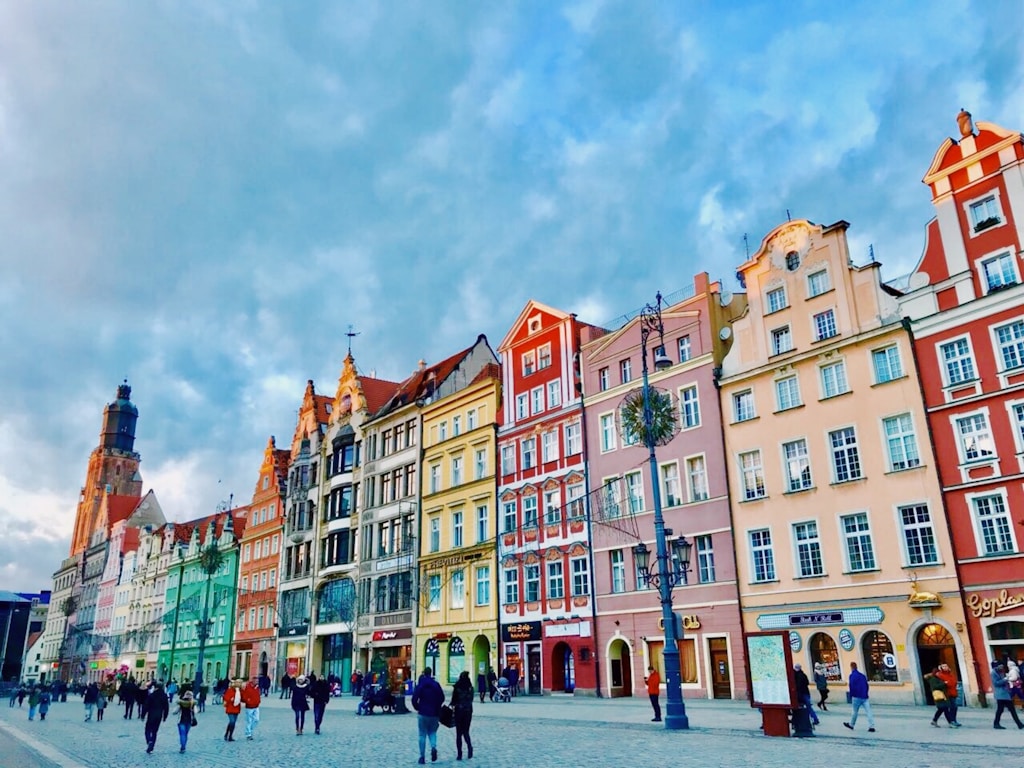Having dual citizenship has been gaining popularity in the last few years. In the era of globalisation and dynamically changing geopolitical realities, having citizenship of more than one country is no longer just a privilege of a select few, but is becoming an increasingly desirable strategy that offers greater life and career opportunities. A Polish passport, although at first glance it may not seem as prestigious as an American or German one, offers a number of benefits that make it an extremely valuable document.
Poland, being a member of the European Union, offers its citizens access to one of the largest and most diverse labour markets in the world. Polish citizenship allows free travel and settlement in any EU country, which opens the door to a wide range of professional and educational opportunities. In addition, having a Polish passport also means enjoying visa-free or simplified travel to many countries around the world, which is an invaluable advantage for frequent travellers.
Dual citizenship also comes with many practical benefits. From access to public healthcare systems to the ability to own property and conduct business in two different countries, to simplified administrative procedures in emergency situations, the list of advantages is long. For Poles living abroad, the Polish passport is therefore not only a symbol of national identity but also a practical tool for exercising various rights and privileges.
Accordingly, we will take a look at all these aspects below, analysing what specific advantages having a Polish passport brings in the context of dual citizenship. We will explore how Polish citizenship can affect our professional, educational and personal lives, and what steps should be taken to obtain it.
The meaning of the term dual citizenship
The term citizenship refers to the relationship between an individual and a state or country, representing their membership of a particular national community. The concept originated in ancient Greece, where there was already a system in place where citizens had certain rights and obligations towards their state. In ancient Rome, the concept was developed and consolidated through the Corpus Iuris Civilis (code of civil law). Over the centuries, the idea of citizenship has been gradually modified and adapted to changing social and political conditions. The modern understanding of citizenship has its roots in the Civil Code, introduced by Napoleon Bonaparte.
Dual citizenship, on the other hand, means that one person holds two passports and citizenship. Dual citizenship can thus be described as a state in which an individual is recognised as a citizen of two different states, while at the same time being obliged to observe the rights and obligations arising from both citizenships.
Why is it worth having Polish citizenship?
As we mentioned at the very beginning, having Polish citizenship gives us a wealth of opportunities. The most important of these include, first and foremost:
– Having both citizenships of the European Union.
As Poland is a member of the EU, having Polish citizenship makes us and our children citizens of the European Union at the same time.
– Being able to travel freely throughout Europe and most other countries around the world.
Thanks to the EU’s Free Movement Directive, we have the possibility to travel in all countries of the European Union, as well as Iceland, Norway, Liechtenstein and Switzerland without the need for a visa. Procedures are simplified and all we need to travel is an identity card, without the need for a passport. The benefits? There you go – separate gates are available at airports for EU citizens and there are no border controls within the Union.
These rights also apply to our family members (spouse, children, grandchildren, parents and grandparents), regardless of whether they hold EU citizenship. Similarly, the residence rights of an EU citizen also extend to your family members who live with you or travel with you. Polish citizenship is furthermore very valuable outside the EU, as Poles can visit many countries without having to obtain a visa.
– The ability to live and work wherever you want within the European Union.
Polish citizenship makes it possible not only to travel but also to settle throughout the European Union, without the slightest restriction. The same applies to the possibility of working in any of the 32 countries belonging to the European community. Moreover, the employer must guarantee us conditions and remuneration at least at the same level as for citizens of the country in which we want to work. The exceptions to this are working in the civil service and in politics – although not all European countries apply these restrictions.
– Retaining your first citizenship
One of the key aspects when considering obtaining dual citizenship is the possibility of retaining one’s first citizenship. The rules on having more than one citizenship vary depending on the country of which you are currently a citizen. In most cases, obtaining Polish citizenship will not affect our original citizenship, meaning that we can enjoy the benefits of both nationalities.
Nevertheless, before deciding to apply for a Polish passport, it is advisable to become thoroughly familiar with the legal regulations in our country. This is because some countries may have restrictions on having dual citizenship and may require you to renounce one of them. It is important to understand the potential consequences and responsibilities of such a decision.
– Possibility of benefiting from public schools or health care
Education in Poland stands at a very high level, so as a Polish citizen, you have the right to learn and study in state schools and universities for free. It is also possible to take advantage of many attractive study programmes abroad.
The same applies to health care. Anyone with Polish citizenship has the same right to be treated by specialised doctors without having to pay additional fees.
How is Polish citizenship acquired?
Polish citizenship can be acquired in several ways, and the regulations concerning this process are set out in detail in Polish law. Pursuant to Article 34 of the Constitution of the Republic of Poland, Polish citizenship is granted automatically to persons who were born to parents who are Polish citizens. Other methods of obtaining citizenship are, in turn, specified by the Polish Citizenship Act. An important aspect is that a Polish citizen cannot lose his/her citizenship unless he/she decides to renounce it himself/herself.
According to the 2009 Act on Polish Citizenship, there are four main ways of acquiring Polish citizenship. These include the acquisition of citizenship:
– By operation of law – citizenship is granted automatically under certain provisions.
– By granting of Polish citizenship – this is a process that takes place at the request of a foreigner. It requires the fulfilment of certain conditions and going through the relevant administrative procedures.
– By recognition as a Polish citizen – applies to persons who meet specific criteria and can document their ties with Poland.
– Through restoration of Polish citizenship – this is an option for persons who have lost Polish citizenship and wish to regain it, usually on the basis of historical or family ties to Poland.
The process of being recognised as a Polish citizen may involve various criteria, such as Polish ancestry, marriage to a Polish citizen or long-term residence in Poland. Restoration of citizenship, on the other hand, is mainly intended for individuals who have lost their Polish citizenship for historical or political reasons and now wish to regain it.





